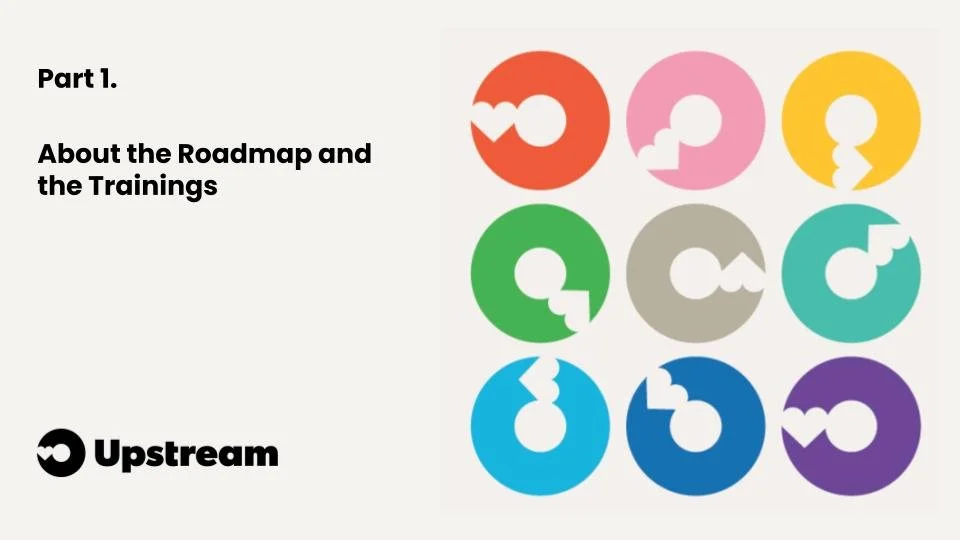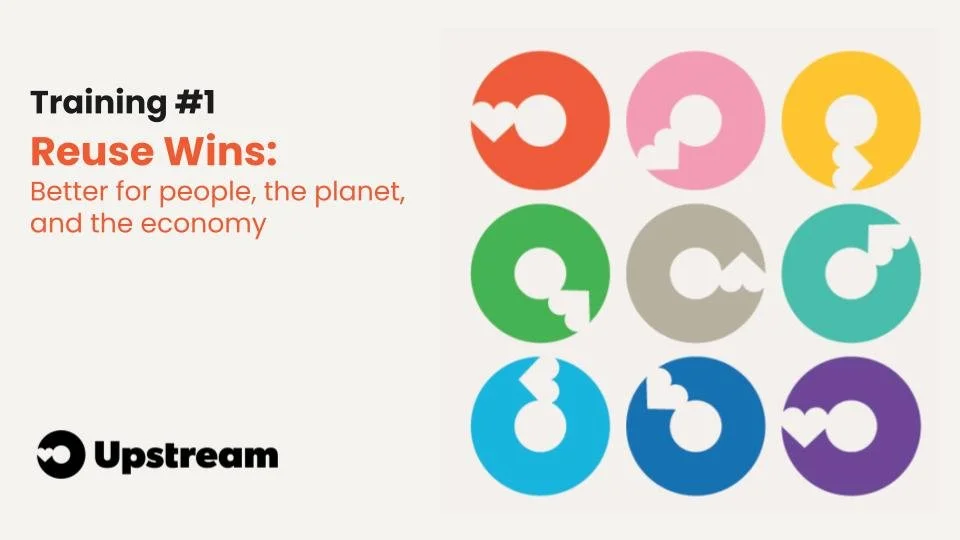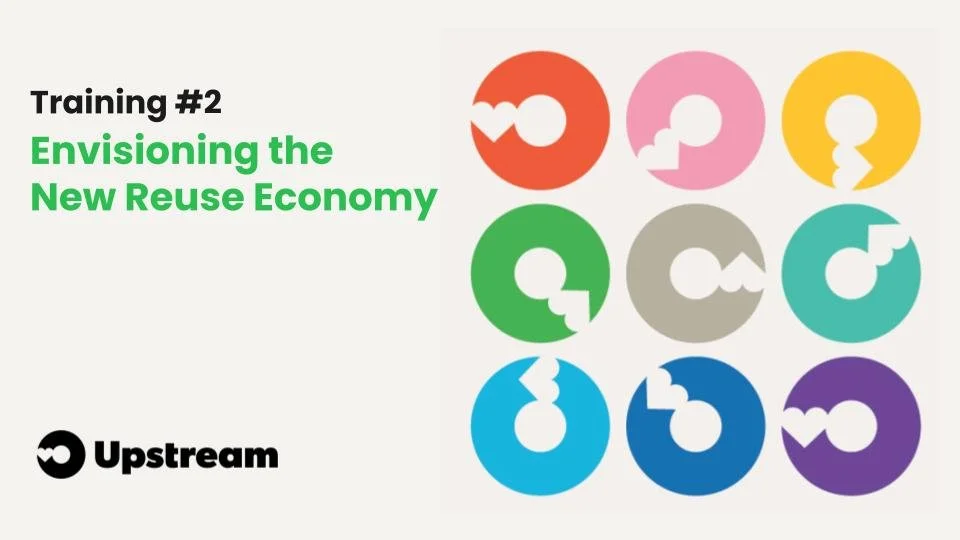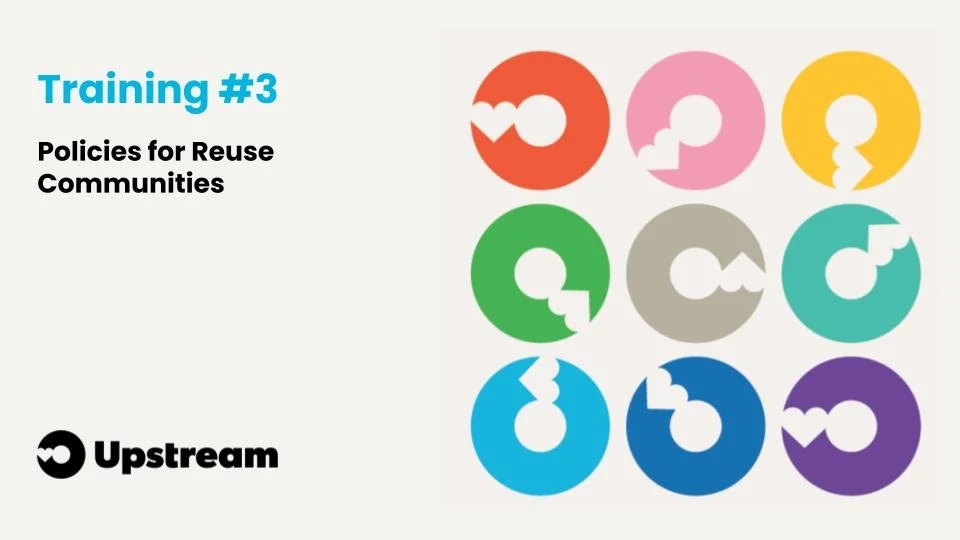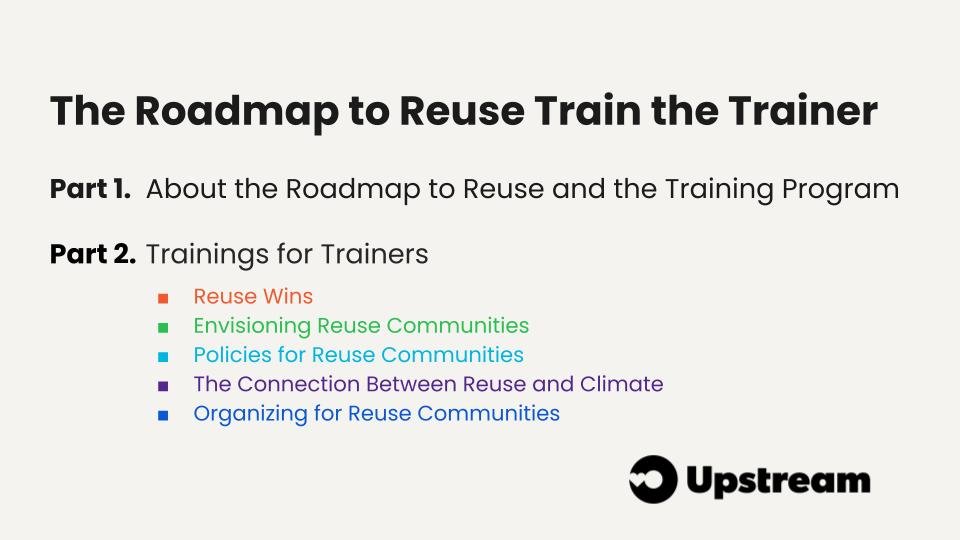A roadmap to reuse.
This roadmap to reuse is for changemakers – the community activists, business entrepreneurs, and policy makers who are ready to tackle the throw-away systems and create a future where both people and the planet are treated as indisposable. Here we provide a variety of ways that local communities can bring about a new reuse economy. Community activists are helping to make this change in so many ways - from enacting local reuse policies, to engaging the business community, to developing reuse services and infrastructure.
Introduction
On a planet of 7 billion people and growing, products that are designed to be used for just a few minutes before they become waste is not sustainable. The truth is, we are never going to be able to recycle or compost our way to a sustainable future because disposable products have human health and environmental impacts throughout their lifecycle. They are part of a throw-away economy that treats both people and the planet as disposable.
As detailed in Upstream’s report Reuse Wins, eliminating unnecessary disposable products and transitioning the rest to reuse can significantly lower environmental and human health burdens and create positive economic benefits, from reduced waste management costs to the creation of local jobs.
Changing the way products are delivered to consumers requires dramatic changes to how businesses operate and how the government regulates those businesses. But communities across the globe are working hard every day to end the one-way, throw-away model and transition to a reuse economy. Upstream is sharing the following tools and resources so you, too, can accelerate this change in your own community.
Get Involved
Government and non-government reuse advocates can be changemakers. In this roadmap to reuse, we provide recommendations for all kinds of Reduce/Reuse champions.
-
Find a local reuse coalition and get involved in changing policy or helping to bring reuse services to your community.
Join our network for reuse leaders from across the US and Canada, the Reuse Solutions Network.
No local reuse coalition in your community? Gather your community members who want to be changemakers and start one. Learn more about launching a reuse coalition below.
-
Get trained on reuse. You can use the trainings provided in this section to educate yourself.
Train others in your community. Please reach out to info@upstreamsolutions.org to request a copy of these trainings below and use them to train others. The notes in each slide will give you talking points. Feel free to adapt these presentations in any way you like. We appreciate you providing an acknowledgement to Upstream for the content.
About the Roadmap to Reuse and the Training Program
Trainings for Trainers:
Envisioning the New Reuse Economy
-
With Upstream’s support and guidance, reusable city coalitions are launching all over North America. Read the Step by Step Guide to Launching a Reuse Coalition.
Contact us if you are interested in starting one yourself and let us know how we can help.
The Reuse Solutions Network is also a great resource for leaders and members of local coalitions.
Enact Local Policies
Public policy can be one of the most effective accelerators for source reduction and reuse – at the local, state and federal levels.
Picture the iconic image of the chasing arrows in a triangle - Reduce, Reuse, Recycle. Many of us have heard it our entire lives. Our kids are taught it in school, and today, more people recycle than vote in the United States.
But somewhere along the way, we forgot that the first two R’s - reduce and reuse - are way more important for the environment than recycling. And unfortunately, we’ve spent most of our time, energy and resources on recycling because frankly, it’s easy. And it doesn’t threaten the throw-away, disposable paradigm established by the current practices of consumer packaged goods and fast food corporations.
Part of Upstream’s focus is on promoting source reduction and reuse through public policy at the local, state and federal levels.
Source reduction involves redesigning systems, products, and services to get us what we want and need without all the waste.
Prioritizing reduce, reuse and refill first focuses “upstream” in the lifecycle of products which helps ensure they don’t become waste that is generally hard to recycle or compost.
Right now, the reuse policies that make the most sense to legislate at the local level focus on food service and events (restaurants and catering), as these are business sectors where decisions about packaging are being made locally.
Connect with Key Stakeholders in the Community
Changing throw-away economy requires collaboration with a diversity of residents within a community to see how the reuse economy can either provide benefits or present challenges for them. Both government and non-government changemakers need to understand how diverse interest groups in the community perceive and react to proposed changes. It’s better to engage these groups early in the process in order to construct policies or programs that address their various concerns pro-actively.
Support and Accelerate Reuse Services in Your Community
Supporting the local businesses that are bringing us goods and services in reusable and refillable packaging can accelerate their growth and help to normalize reduce, reuse, and refill. Your group can help to expand the availability of reuse systems in your local community in several ways.
Learn about State-level Policies for Reuse
While local communities are acting as laboratories for accelerating reuse in food service, bringing reuse and refill to some business sectors makes more sense at the state level. For example, many states are looking at promoting increased recycling of packaging waste with bottle bills and extended producer responsibility laws. Others are looking at reducing waste from electronics and equipment by ensuring that they are repairable.
Upstream is working to build an “upstream” approach to these laws so they don’t just focus on what to do with packaging or beverage bottles once they become waste. We are advocating for prioritizing the elimination of waste in the first place, by:
Advocating for bottle bills that bring back refillable bottles
Holding producers responsible for transitioning portions of their packaging to reusables
We invite you to learn more about the ways to build reduce/reuse into state policies:
Roadmap to Reuse Resource Library
-

The Reuse Policy Playbook: National version
-

The Reusable California Playbook
-

Reusable Foodware Catalog*
-

Reuse Service Business Directory
-

Reusables Win in California
-

The Reuse Outreach Playbook
*Accessible PDFs are available upon request. Please email info@upstreamsolutions.org.
Trainings
Welcome to the Roadmap to Reuse Training Program. In this training you will learn about the Roadmap to Reuse and how you can use it and the trainings we’ve created so that anyone can educate and engage others to join the reuse movement. You may request a copy of these presentation slides and their notes to adapt for your own use by emailing info@upstreamsolutions.org.
Train the Trainer presentation series slide deck preview.
Email info@upstreamsolutions.org to request an editable deck you can use for your own presentations.
Impact Profiles of Restaurants that Switched to Reuse
Restaurants featuring Pan-Asian or Pacific Island Cuisines
Beverage-focused Foodservice Establishments
(cafes, breweries)
Fast-Casual Restaurants
Quick Service Restaurants
(bakeries, donut shops, ice cream)
Taquerias
*A list of SB1335-compliant single use products may be found here.
The Roadmap to Reuse project was generously funded by the Ocean Protection Council.




